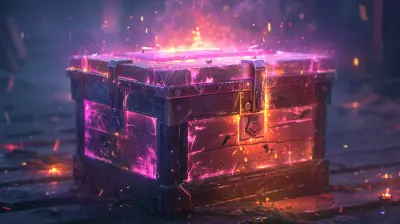The Enchantment of Lore: Why the History of RPG Worlds Matters
28 July 2025
Let’s face it—when it comes to role-playing games (RPGs), the thrill of battling dragons or saving the galaxy is only part of the fun. The real magic? It lies in the worlds we dive into, the stories hidden in their crevices, and the rich lore woven into every pixel and page. Lore is not just the backdrop of an RPG; it’s the beating heart of these fantastical universes that keeps us engaged, curious, and emotionally invested.
Why does the history of RPG worlds matter, though? Well, buckle up, because we’re about to geek out about one of the coolest (and most underrated) aspects of RPGs—lore!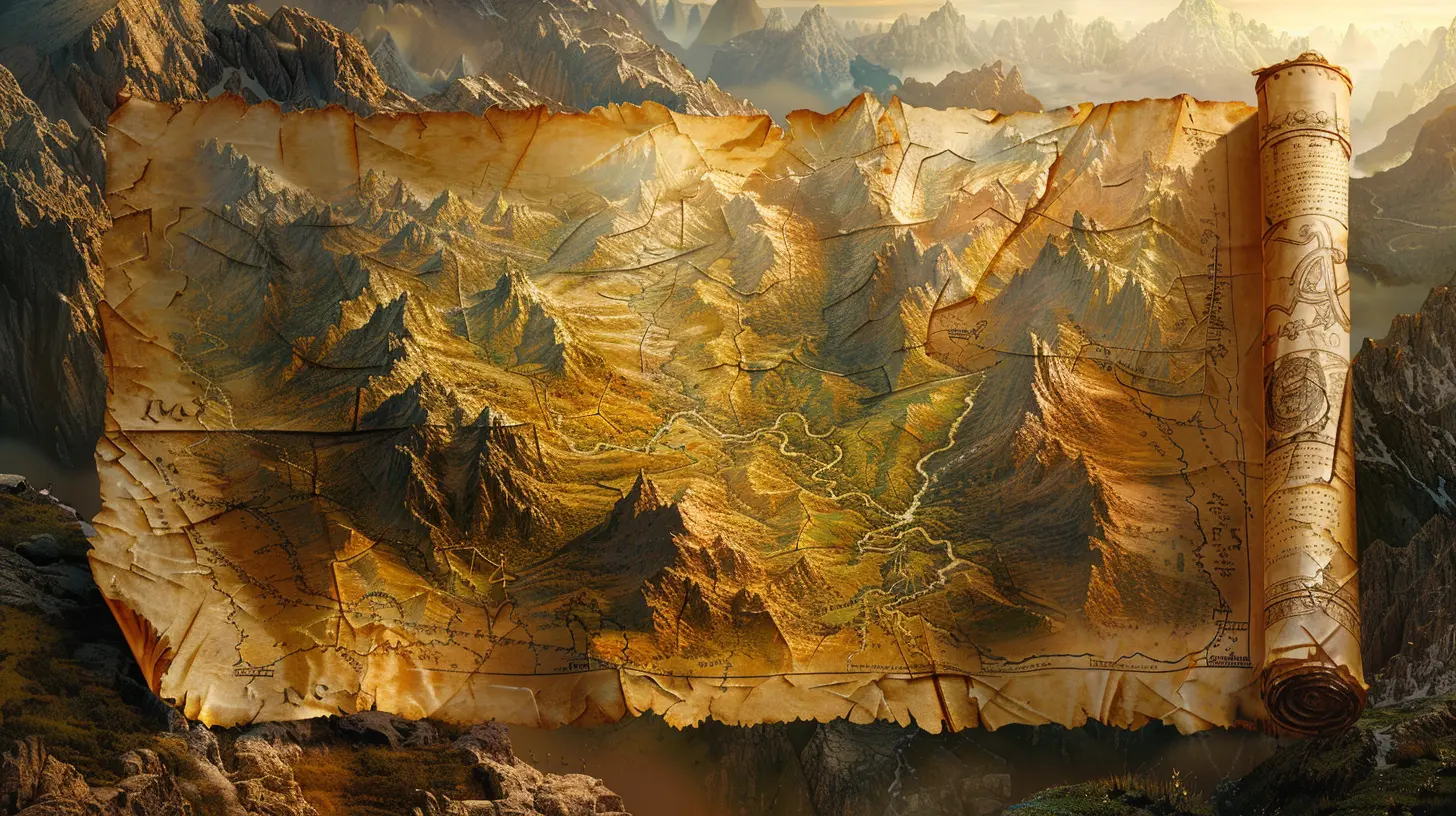
What Is Lore, Anyway? (And Why Should We Care?)
First off, let’s get on the same page. Lore is essentially the history, mythology, and cultural framework of an RPG world. It’s the foundation that explains why your character is hunting treasure in a dungeon or why the big bad villain has plans to obliterate everything you hold dear. Without lore? The game is just a series of actions without meaning—like eating pizza with zero toppings. Sure, it’s pizza, but where’s the excitement?Imagine playing Skyrim without the ancient Nordic ruins or the tale of Alduin, the World-Eater. Or journeying through The Witcher 3 without the political tension between kingdoms or Geralt’s backstory as a monster hunter. Bleak, right? Lore gives context and depth. It’s like the juicy drama in your favorite TV series, but for virtual worlds.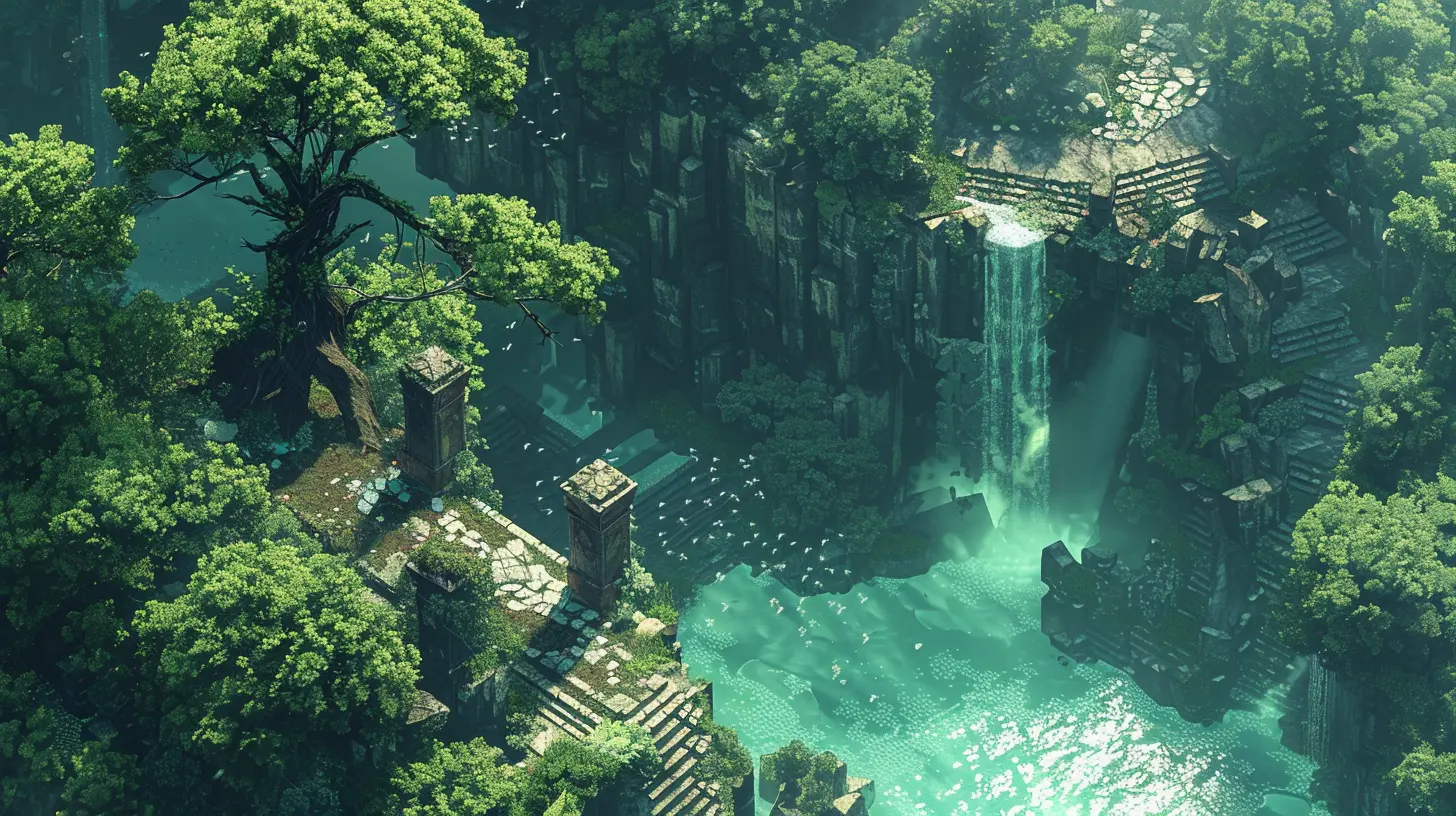
Lore Makes the World Feel Alive
Let’s keep it real: an RPG without lore is like an IKEA showroom—pretty to look at, but it feels fake. Lore transforms flat, lifeless environments into vibrant, breathing worlds. It's what makes The Legend of Zelda’s Hyrule more than just a map filled with quests. It’s why Mass Effect’s Citadel feels like an actual hub of galactic politics rather than a sci-fi backdrop.Through lore, the world gains personality. NPCs (non-playable characters) suddenly have reasons for their quirky behaviors. Towns have histories. Dungeons have forgotten secrets. Even the monsters you fight have purpose. It's not just a giant spider—it’s a guardian of an ancient relic cursed by a long-dead wizard. It’s not just a village—it’s a settlement built on the ruins of a civilization wiped out by a volcanic eruption centuries ago.
Awesome, right? It's like the difference between visiting a theme park and walking through a historical city. One is fun for a day; the other sticks with you for a lifetime.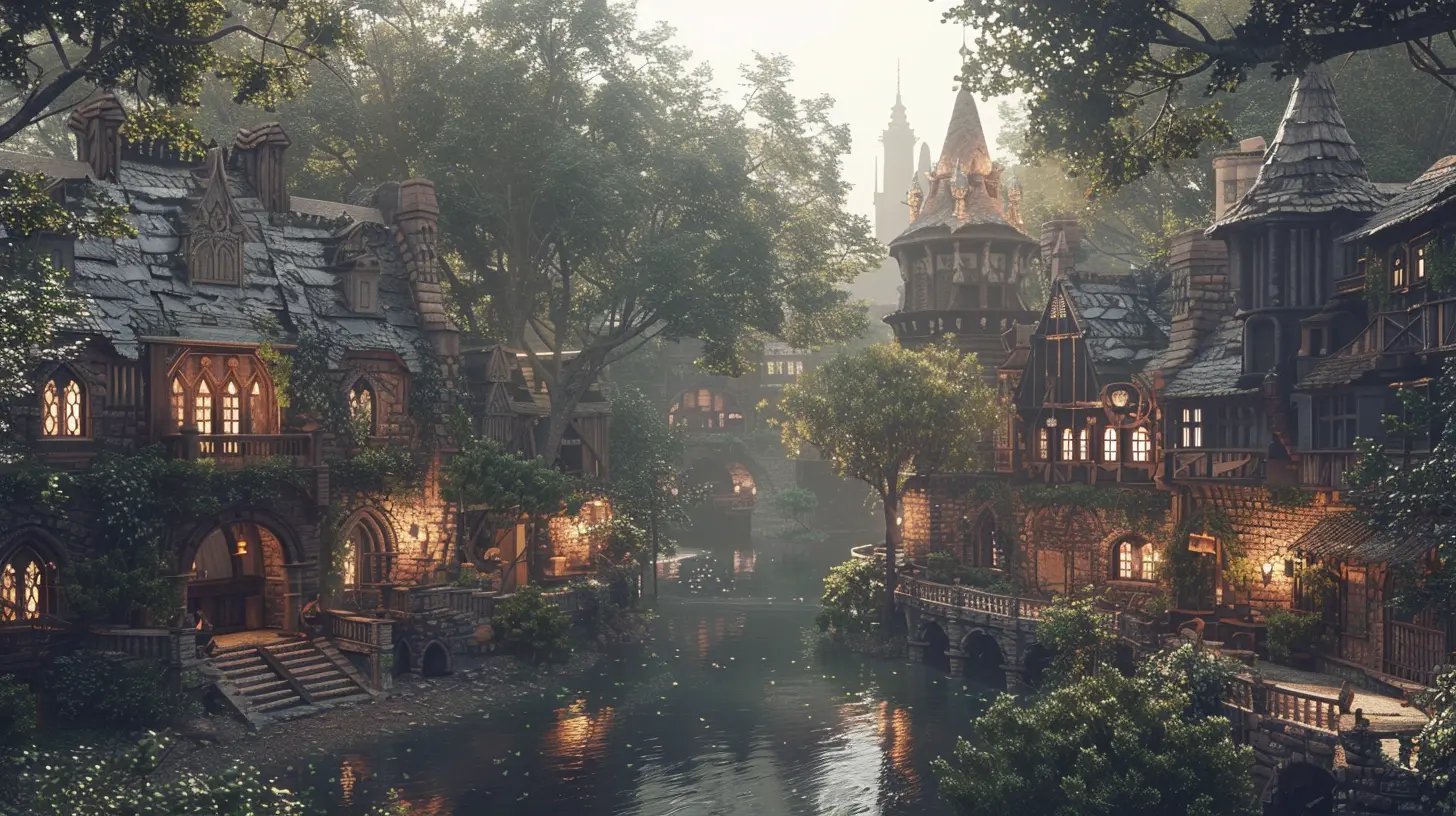
Lore Deepens the Emotional Connection
Okay, imagine this: you're fighting a final boss. On the surface, it’s just another pixelated fight to the death. But wait—what if you knew this villain’s tragic backstory? Maybe they lost everything in a war, were betrayed by their closest allies, and turned to darkness out of desperation. Suddenly, you feel a pang of sympathy.This is the magic of lore. It turns generic "bad guys" into characters with depth and nuance. It makes you think twice about your choices. Should you spare them? Are you any better than them? Lore doesn’t just tell you what to do—it makes you care about the outcome.
Take Final Fantasy VII’s Sephiroth, for example. His descent into madness isn’t just because he woke up on the wrong side of the bed. It’s rooted in personal betrayal and existential despair. That’s why fans love him—not because he wields a massive sword, but because his story hits you right in the feels.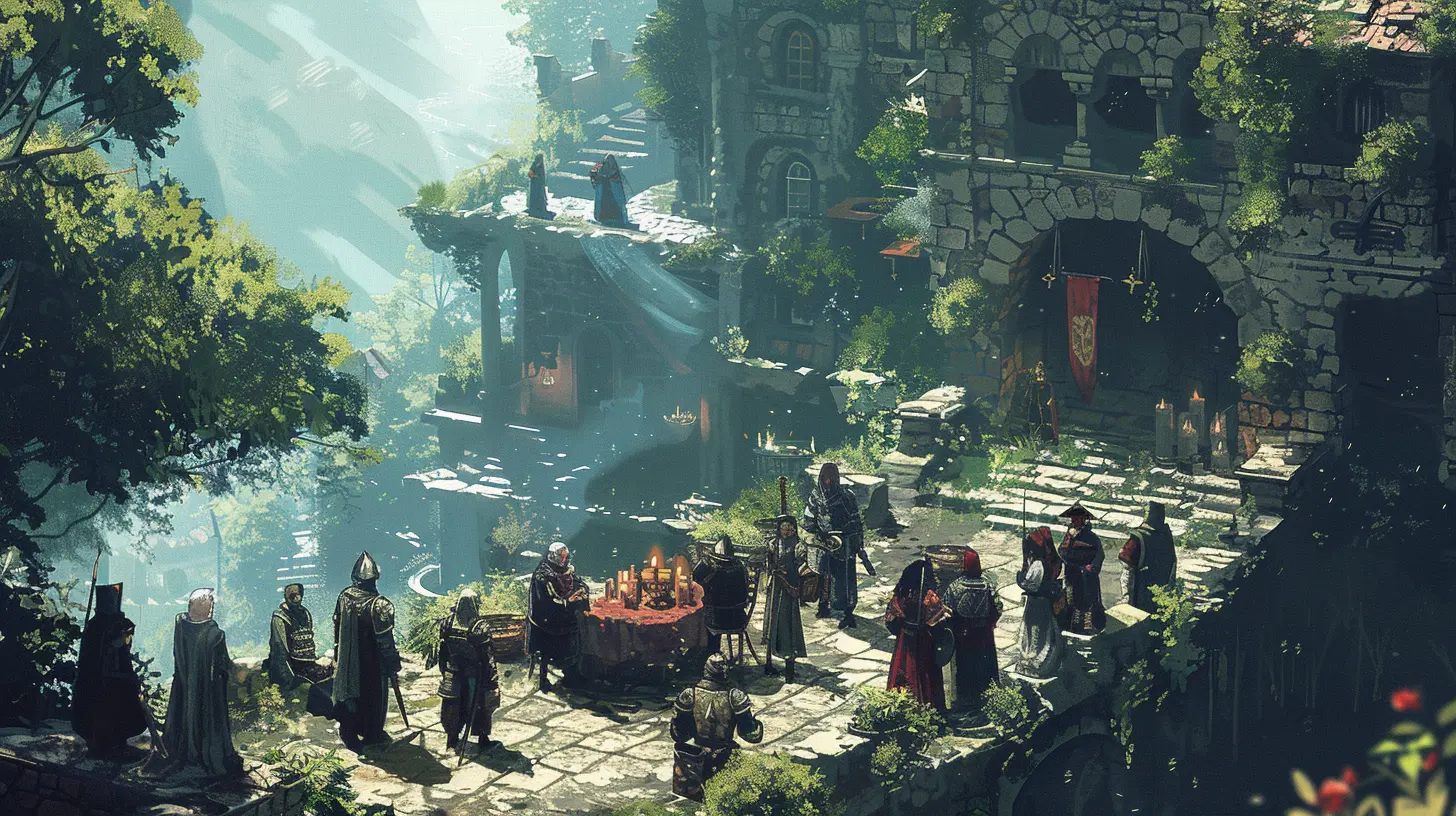
Lore Enhances Replayability (Yes, Really!)
Here’s a fun thought: the first time you play an RPG, you’re basically like a tourist. You see the sights, take some quests, and slay a dragon or two. But the second time? That’s when you start noticing the juicy lore tucked away in unexpected places.Remember that dusty old book you ignored in the corner of the library? Turns out it’s a detailed account of an ancient rebellion that shaped the entire game world. Or that seemingly random dialogue from a shopkeeper? It hints at a hidden dungeon loaded with treasure. In games like Elder Scrolls, Dragon Age, or Dark Souls, the deeper you dig into the lore, the more you uncover—and it’s like peeling back layers of an onion (but without the weird crying).
Replayability isn’t just about trying a different character build or difficulty level. It’s about uncovering new pieces of the puzzle with each playthrough. Lore makes the world feel endlessly rich, encouraging you to re-experience the game in a new light.
How Games Use Lore to Tell Stories Without Words
Here’s a fun fact: some of the best RPG lore doesn’t require a single line of dialogue. It’s tucked away in the environment, waiting for eagle-eyed players to stumble across it. We’re talking about environmental storytelling—the ultimate “show, don’t tell” technique.Take Dark Souls as an example. The game is notoriously sparse on direct storytelling, but its world practically oozes lore. The crumbling castles, haunted catacombs, and abandoned villages each tell their own story. Even the placement of enemies and items offers clues about the tragic fate of its world. It’s like a scavenger hunt for context, and fans absolutely eat it up.
This approach makes players feel like archaeologists uncovering ancient secrets. It’s engaging, immersive, and endlessly fascinating. Who knew that digging through virtual ruins could feel so satisfying?
The Role of Lore in Player Choice
Ever wonder why some RPGs feel more impactful than others? It’s often because of the lore behind the choices you make. Let’s take a moment to appreciate how lore can turn decision-making into an emotional rollercoaster.In The Witcher 3, for example, your choices often revolve around complicated moral dilemmas—and the lore makes those choices sting. Do you help a cursed ghost find peace, knowing it might doom an entire village? Or do you banish them and risk destroying a piece of the world’s history? The lore provides all the context you need to agonize over your decision, and it makes every choice feel weighty and meaningful.
Without lore, these decisions would feel hollow. It’s like having to choose between two unknown flavors of ice cream versus choosing between chocolate and vanilla. One you care about; the other, not so much.
Modern Games and the Evolution of Lore
Lore is evolving, and modern RPGs are taking it to astronomical levels. Games like Cyberpunk 2077 and Horizon Zero Dawn weave lore into every facet of the experience—from side quests to hidden documents and even in-game graffiti. It’s not just about knowing the past; it’s about feeling like you’re part of a living, breathing world.Developers are also paying more attention to diversity in lore. They’re creating worlds that draw from a wide range of cultures, myths, and histories. This not only makes the stories more inclusive but also provides fresh, unique narratives that we haven’t seen before.
And let’s not forget about live-service RPGs like Destiny 2, where the story evolves over time. Players are treated to an unfolding saga that keeps them emotionally invested for years—because who doesn’t want to watch history being written in real-time?
Why Lore Matters to Gamers
At the end of the day, gamers love lore because it fulfills something primal: the desire to connect. Whether we’re exploring ancient ruins, deciphering cryptic prophecies, or unraveling tales of betrayal, lore makes us feel like we’re part of something bigger. It’s not just a game; it’s an experience. A story. A memory.Think about the moments you reminisce about your favorite RPGs. Chances are, it’s not just the epic battles or loot—it’s the stories that stuck with you. The friendships forged, the villains redeemed, the mysteries solved. That’s the enchantment of lore. It’s timeless, magical, and infinitely rewarding.
So next time someone shrugs off lore as just "background fluff," hit them with this: lore is what transforms games into legends. And hey, who doesn’t love a good legend?
all images in this post were generated using AI tools
Category:
Fantasy RpgsAuthor:

Jack McKinstry
Discussion
rate this article
1 comments
Vex Gilbert
This article beautifully captures the essence of RPG worlds! The rich lore not only enhances gameplay but also creates a deeper connection for players. Understanding a game's history adds layers to our experiences, making every quest feel more meaningful. Keep exploring these enchanted narratives!
August 8, 2025 at 3:56 AM

Jack McKinstry
Thank you for your kind words! I'm glad you resonated with the importance of lore in enriching our RPG experiences. Happy exploring!


